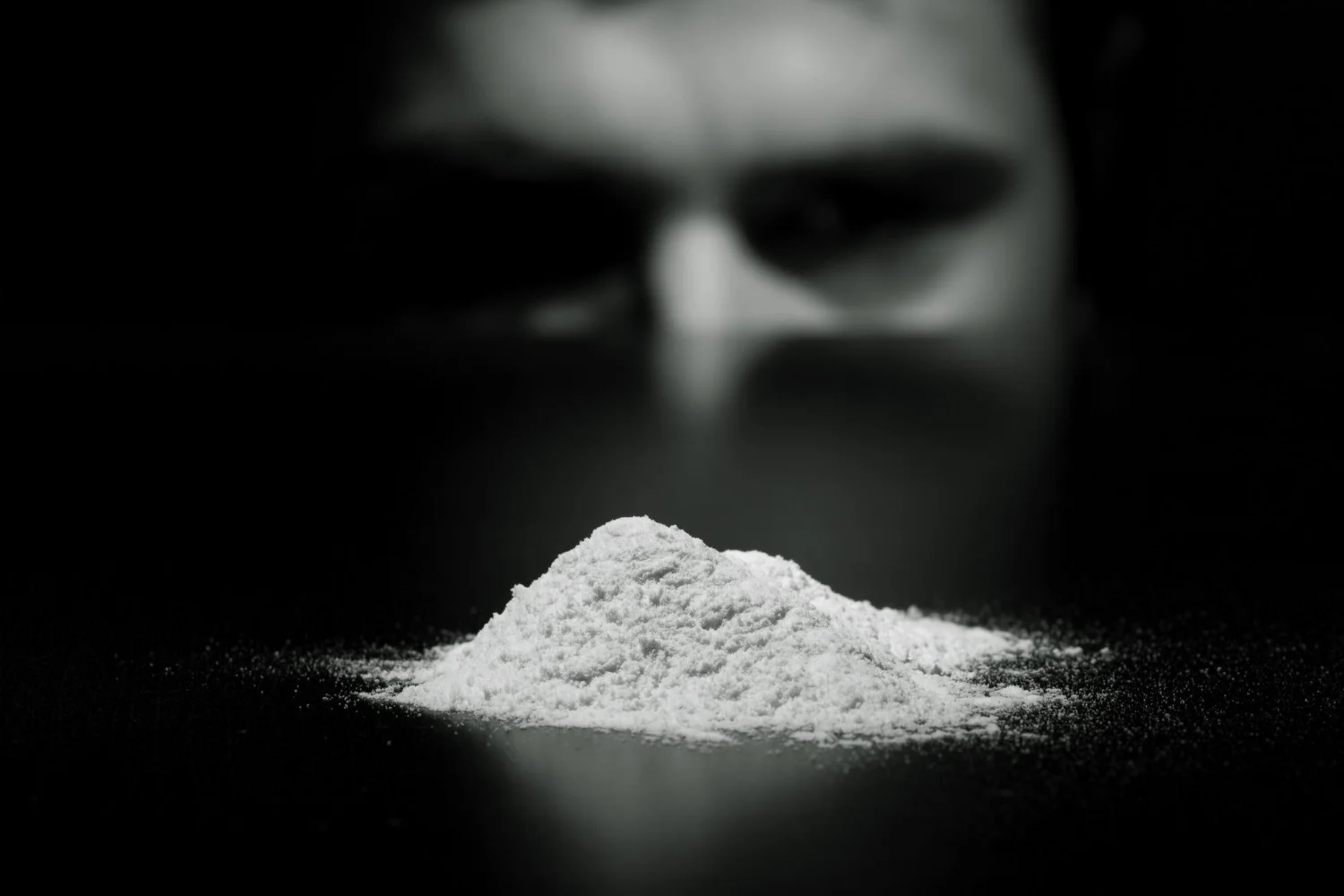Cocaine Addiction and Its Long-Term Implications
The long-term effects of cocaine addiction are severe, complex, and, many times, irreversible. The first addictive effects of the substance include pleasure, boosted energy, and confidence. Ongoing use, however, leads to tolerance, and higher dosages are needed to achieve the same results, which raises the risk of addiction and health problems.

Cocaine use over time changes the amounts of the neurotransmitter dopamine, which regulates the reward and pleasure circuits in the brain. When this rewiring produces intense cravings and compulsive drug-seeking behaviors, quitting on your own can be pretty tricky.
Apart from the obvious physical risks, such as cardiac and breathing issues, cocaine addiction has dreadful long-term consequences. Cognitive deterioration in long-term users causes memory, attention, and decision-making issues. Long-term cocaine usage can cause depression, anxiety, and mania.
Addiction harms relationships, hinders academic performance, and increases the risk of legal trouble. These results are disappointing, but mental and physical addiction treatment programs provide hope.
What Are the Signs of Cocaine Addiction?
Many times, physical signs of cocaine addiction include behavioral changes, mood swings, and erratic actions. People who try to hide their addiction may show signs of change, such as being defensive, dishonest, or secretive when questioned about their drug use. In addition, physical symptoms like dilated pupils, which can look abnormally big even in bright lights, frequent nosebleeds (particularly in cocaine snorters), noticeable weight loss as a result of the drug's effects on appetite and metabolism, chronic insomnia as a result of disturbed sleep cycles, and nasal issues like congestion, frequent sniffing, or even damage to the nasal septum from prolonged snorting are common. These outward manifestations not only show how much of a toll addiction has on the body, but they also provide hints as to how much of an individual's health has been negatively affected by their substance consumption.
Is Cocaine Addiction Dangerous?
Addiction to cocaine is extremely dangerous, not just for the user but also for others around them. The individual's health is jeopardized in the short and long term due to cocaine addiction. Coronary problems, such as palpitations, hypertension, and even heart attacks and strokes, can develop in the short period after using cocaine. Injecting or smoking cocaine increases the risk of respiratory issues, including shortness of breath or respiratory failure. An increased risk of accidents, injuries, or overdose might result from the erratic behavior caused by cocaine's stimulant effects.
Cocaine addiction also has far-reaching effects on others around the person with a substance use disorder. Cocaine users' anger and violence endanger themselves and others. Addiction harms family, friends, and community by straining relationships, but also by financial and legal concerns.
Cocaine misuse has major economic repercussions, including higher medical costs, drug trafficking-related crime, and social service strain. Not just people with a substance use disorder are at risk from coke usage. Everyone around them is significantly affected.
|
Dangers to Oneself |
Dangers to Others |
|
There is a high risk of cardiovascular complications, such as heart palpitations, heart attacks, and aortic dissection. |
Risk of physical harm due to erratic or violent behavior, with increased perception of strength. |
|
There is a high risk of having respiratory issues, such as difficulty breathing and respiratory failure. |
Strained relationships with family, friends, and community due to the substance abuse and behaviors associated with it. |
|
Increased risk of overdose, especially when mixed with other substances. |
Financial instability due to addiction-related expenses and bad financial decisions. |
|
Cognitive impairment includes short-term memory loss, impaired decision-making, and altered perception of one's own abilities. |
Legal troubles, such as fines, arrests, and incarceration. |
|
Risk of addiction-related psychiatric disorders, such as depression, anxiety, and maniac episodes. |
The social stigma associated with addiction could make the inner circle distance from the cocaine user. |
|
The social stigma associated with addiction and self-rejection. |
The burden of healthcare on society is due to increased healthcare costs, creating a public health problem. |
Short-Term vs. Long-Term Implications
The immediate physiologic consequences of cocaine on the body and brain are what lead to its short-term implications in the setting of addiction. After use, cocaine rapidly penetrates the blood-brain barrier, raising dopamine, serotonin, and norepinephrine levels—feel-good, mood-regulating, and arousal neurotransmitters.
Many people talk of coming out of this surge feeling overwhelmingly happy, energized, and confident. However, the effects typically last only a few minutes to hours, so to maintain a high mood, one must continue taking more and more of it. In the short term, there is a risk of adverse effects such as increased heart rate, elevated blood pressure, difficulty breathing, and overdose.
An overdose can lead to death or severe medical issues. Cocaine's exciting character may cause people to behave carelessly, increasing the number of accidents, injuries, and violent attacks.
Conversely, the main reasons for the long-term effects of cocaine addiction are long-term drug exposure and chronic alterations in brain chemistry. When cocaine use leads to the brain's adaptation to become less responsive to dopamine, tolerance results, and addiction can start sooner if one takes ever higher doses of cocaine to maintain the same effects after building a tolerance.
Chronic cocaine use goes beyond the alteration of neurotransmitters, as it can modify the structure of the brain, especially in the areas of impulse control and reward processing; this can have repercussions and worsen the addiction, make you more prone to other addictions, and alter decision-making.
Circulatory abnormalities caused by cocaine can lead to heart disease or stroke due to increased formation and rupture of atherosclerotic plaques; mental disorders, such as psychosis, anxiety, or depression, can develop and be difficult to treat even with psychotropic drugs; and respiratory diseases, respiratory failure or chronic bronchitis, can develop. In the case of interpersonal relationships, you may be much more likely to get into trouble with the law, perform poorly in school and at work, and have severe problems with your inner circle.
|
Aspect |
Short-Term Implications |
Long-Term Implications |
|
Time Frame |
Sudden effects with rapid physical and mental stimulation, lasting minutes to hours. |
Chronic effects develop over weeks, months, or years. |
|
Pharmacological Effects |
Rapid surge of the neurotransmitters dopamine, serotonin, and norepinephrine. |
Altered brain chemistry, particularly dopamine levels. |
|
Psychological Effects |
Development of intense euphoria, perception of increased energy, and heightened confidence. |
Cognitive impairment, including memory and decision-making. |
|
Physical Effects |
Increased heart rate, elevated blood pressure, and potential for respiratory issues. |
Risk of cardiovascular complications and chronic respiratory problems. |
|
Risks of Medical Emergencies |
There is an acute risk of overdose and the potential for life-threatening complications. |
Continued risk of overdose, increased susceptibility to health crises. |
|
Behavioral Risks |
Potential for reckless behavior, accidents, injuries, and violence. |
Development of compulsive drug-seeking behaviors and impaired judgment. |
|
Social and Legal Consequences |
Potential legal issues, strained relationships, social stigma. |
Long-term social and economic repercussions, difficulty reintegrating into society. |
Should You Get Treatment for Cocaine Addiction?
There are several reasons why it is essential to seek treatment for cocaine addiction. To begin with, the health problems that have already been brought up. These health issues may worsen and even become fatal if we do nothing to address them. Additionally, by receiving therapy, you can address the social effects of addiction and help heal damaged relationships.
Those struggling with cocaine addiction might find help in many different places. You have the option of participating in either an inpatient or outpatient recovery program. Addiction impacts people on multiple levels; these programs address all three through organized environments and evidence-based treatments. Many of these programs offer various types of therapy, such as family therapy, group therapy, private counseling, and support groups, to help with rehabilitation.
There are medications that can be prescribed to help you deal with withdrawal symptoms as well as cravings, and that would be a plus to keep you away from using cocaine. Another very important tool is Narcotics Anonymous (NA), which could give you support and direction; also, other community-based organizations have the potential to foster the improvement of professional treatment programs. The first step toward overcoming an addiction to cocaine and living a life that is both healthy and happy is to seek treatment.
What Type of Professional Can Help You?
Multiple providers can help cocaine abusers. Substance abuse counselors specialize in behavioral therapy. Being medical specialists, psychiatrists may diagnose and treat many mental health conditions, including addiction. They can also prescribe medicine for withdrawal and co-occurring conditions.
Psychologists require psychotherapy training to aid people with substance use disorders. Social workers assist families and individuals struggling with addiction by offering a range of services, support, and advocacy. Primary care physicians play a crucial role in diagnosing addiction, providing treatment, and making referrals to specialists.
Addiction experts are professionals such as doctors, psychologists, and counselors who have specialized knowledge of helping individuals with substance use disorders. Both Narcotics Anonymous and SMART Recovery provide peer support services. Interdisciplinary teams offer a wide range of addiction treatment options, both in inpatient and outpatient settings. If you or someone you know is struggling with cocaine addiction, it's important to seek treatment.





